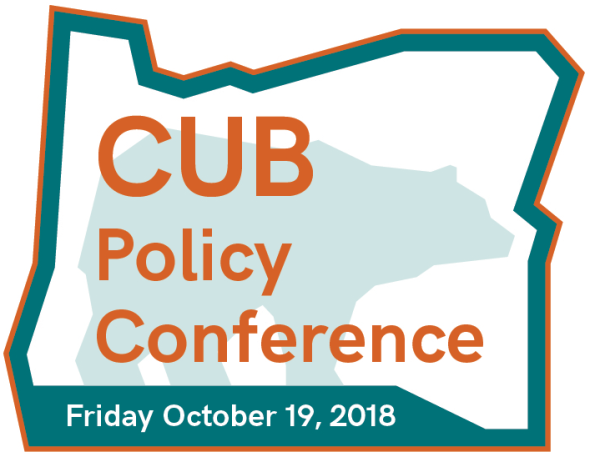CUB Conference Preview: Community Decarbonization
Posted on August 31, 2018 by Janice Thompson
Tags, Energy, Conference & Events

As we draw closer to CUB’s eighth annual energy policy conference, Destination: Decarbonization on October 19 at the Downtown Portland Hilton, the CUB blog is featuring previews of each of our six breakout panels, and some of the questions and issues our attendees can expect panelists to discuss. Next up in this year’s preview series is the topic Community Decarbonization and Beyond which will be moderated by CUB’s Advocacy Director, Janice Thompson.
Decarbonization efforts increasingly occur at neighborhood and community levels. Local efforts frequently address a multitude of goals beyond energy efficiency and renewable energy projects to reduce greenhouse gas emissions. For instance, ensuring a more just transition for communities hurt first and worst by climate change is a major motivation for interconnecting energy improvements with job training and affordable housing development without displacement of low-income residents. Integrated local efforts can result in greater community resilience with alignment of economic benefits as well as health, livability, and decarbonization goals.
A particularly innovative and comprehensive approach is occurring right here and right now in the city of Portland. This past spring, Living Cully – an independent, nonprofit collaboration that formed in 2010 among Habitat for Humanity Portland/Metro East, Hacienda Community Development Corporation, Native American Youth and Family Center, and Verde – released their new Community Energy Plan.
For those less familiar, the Cully neighborhood in Northeast Portland faces numerous employment, education, housing displacement, and public health challenges. Yet vigorous community-driven vitalization efforts continue to deliver promising results. The Living Cully Community Energy Plan is a neighborhood-scale plan, which identifies energy conservation and energy generation pilots for the Cully neighborhood. The Energy Plan creates a blueprint for preventing housing displacement through increased energy sector investments, and is driven by community-led energy education and needs assessment.
Panelists include Carolina Iraheta Gonzalez, Verde’s Community Energy Advocate; Alan Hipólito, Verde’s Founder and Director of Special Projects and Verde Builds Social Enterprise, which develops environmental and energy infrastructure in low-income communities; Carol Chan, Living Cully Coordinator; and Nestor Campos, Verde’s Environmental Education Coordinator and lead developer and instructor of Verde’s environmental curriculum and solar youth curriculum.
Conference attendees should anticipate a fantastic panel illustrating the extent to which energy investments produce co-benefits such as improved employment, education, anti-housing displacement, and public health outcomes – particularly in low-income communities.
Registration is now open for the 2018 CUB Policy Conference, and you can find more information about the day’s agenda, travel and lodging, and other details on the conference website. We are grateful to Polar Bear Sponsors, Pacific Power, and Portland General Electric; Grizzly Bear Sponsors Avangrid Renewables, and NW Natural; and Media Sponsor Clearing Up, for their generous support of this event. Sponsor packages are available at a variety of levels; for more information contact Pamela White at .(JavaScript must be enabled to view this email address) or (503)227-1984 x10.
Stay tuned for further updates, and previews of our other remaining three breakout topics! (See previous 2018 breakout panel preview blogs here.) You can follow conference news by joining our email list, and on Twitter using the hashtag #CUBCon18.
To keep up with CUB, like us on Facebook and follow us on Twitter!




09/05/18 | 0 Comments | CUB Conference Preview: Community Decarbonization